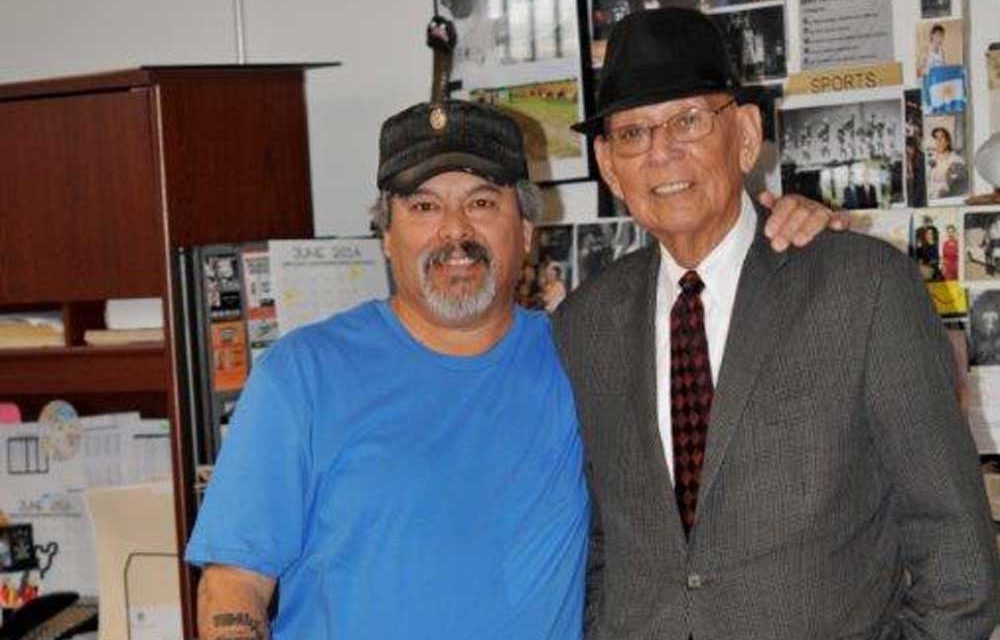Newspapers have seen plenty of change over the past four decades and Jose Franco, Spanish editor of La Prensa Texas, has all the history firsthand over the first Spanish-language newspaper in San Antonio. Franco has been reporting for 45 years, 27 of those years with La Prensa Texas. “To me, La Prensa Texas represents culture, a voice and power for the Hispanic community,” he said.
On February 13, 1913, Ignacio Lozano, a well-known journalist from Mexico, published the first issue of La Prensa in San Antonio, Texas. Lozano had immigrated to the United States during the Mexican Revolution seeking asylum and prosperity. He created a politically-independent periodical that kept the Mexican-American population in Texas informed of current events happening in Mexico. “That was important. So La Prensa quickly grew to become one of the most circulated Spanish-language newspapers of its time,” said Franco.
Franco was born in Durango, Mexico where at just 12-years-old he began helping his older brother develop photos in the dark room and taking photos at special events. This experience landed him jobs working for various papers published in Mexico in 1975 when he began his newspaper career. From there he moved to California in 1982 and worked on various weekly papers before starting his own newspapers; El Vocero and El Informador de Orange County. Franco never shied away from difficult articles, in fact, he kept his reporting so true that he eventually had to leave Orange County for his safety as several gang members attempted to harm him for writing stories about gang violence.
This brought Franco to San Antonio in 1991 where he was offered a job right on the spot after fixing an issue of La Prensa de San Antonio– it’s name at the time– was experienced with photos. As a general reporter with La Prensa Texas, Franco has covered presidential inaugurations, special events like Fiesta, the opening of the Alamodome, the AT&T Center and he’s interviewed state senators like Henry B. Gonzalez. He even witnessed the cut of the professional hockey and women’s basketball teams that were based in San Antonio.
“My favorite thing to cover is sports because I enjoy it. It’s my passion,” said Franco. During the beginning of the pandemic, there were no sports to cover, but now slowly more are being played again.”
Franco worked with La Prensa de San Antonio through 2017. Finally, after being published only on digital along with years of staff and budget cuts, La Prensa de San Antonio shut its doors in June 2018. The decision was made by then publisher, Nina Duran, who had taken over the paper in 2016 after the retirement of her father, Florentino “Tino” Duran, who resurrected the paper with his wife Amelia “Millie” Duran in 1989.
In June 2018, Steve Duran, son of “Tino,” took over the paper dubbing it La Prensa Texas. The weekly paper was again published in print but switched to a weekly publication with consistent bilingual articles. “This was huge because San Antonio is 70% hispanic but the English articles brought in new readers,” said Franco.
Franco has seen many strategies implemented into the survival of print newspapers but he shared that without advertising a paper cannot survive. “You’re dead if you don’t have a lot of advertisements because it’s what funds the paper,” he said. “Besides that, to be successful you need a good picture and a good story.”
It’s no doubt that La Prensa Texas has gone through many changes, but Franco shares that he has high hopes for the paper’s future. “Right now under the umbrella of the current publisher, Yvette Tello, and editor-in-chief, Roxanne Eguia, it’s a very relaxing and patient environment,” he said. “Women are changing things, and these women (Tello and Eguia,) make a beautiful paper every week.” Through other changes, Franco went from getting paid salary since he was 20 years old, to working for La Prensa Texas without pay these past three years. “I do it because I love it,” he said.
Franco shares, although retired since 2017, he has no plans on stopping his reporting. “This is a nonprofit newspaper, so I do it because La Prensa Texas is special to me,” he said. “My wife of 35 years, Puline Franco, (San Antonio native) doesn’t like it too much because of the money, but she is very supportive and my family is very proud of me.” Franco has a 31-year-old son, Vidal Rodrigo Franco Sr. and a 2-year-old grandson, Vidal R. Franco Jr in San Antonio. Most of his family resides in Orange County California near L.A.
Despite all the changes the paper has made it’s clear the presence of La Prensa Texas is needed in San Antonio. To provide a voice to people who don’t always get featured in bigger news outlets. “It’s no doubt the paper has shifted, not just for me but people can also feel it. They read it and conserve it,” said Franco. This comes with the recent changes La Prensa Texas has incorporated, like publishing more stories in English from younger writers including writing contributors.
When asked what he hopes for the future generation writing for La Prensa Texas, Franco shares he hopes they comply with writing ethics. “All my life, I’ve never copied a newspaper. It’s always my own writing and I hope the next generation does the same,” said Franco. “La Prensa Texas is going to honor most stories but don’t expect a paycheck because this is a nonprofit paper,” he said. “My hope is that corporate America and the counties continue to support advertising because without it, we’re dead,” said Franco.
You can currently catch Franco with his Nikon D3200 megapixels covering special events and local sports like baseball and the San Antonio FC soccer games.










